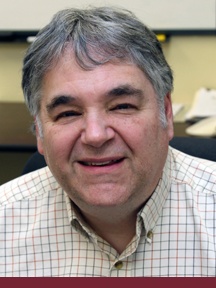
Written by Todd Siben
 By Todd Siben • October 17, 2012
By Todd Siben • October 17, 2012
If you are like many adults, a significant amount of your life knowledge has been acquired through learning experiences that occurred outside of a classroom. Through the University’s prior learning assessment (PLA), you can use your college-level knowledge to earn the credit you deserve.
Because prior learning assessment is such a unique method of earning credit, students often find the concept somewhat difficult to grasp. I'm going to simplify it for you and help you over the next hurdle!
The PLA process allows you to earn credit for knowledge gained through learning experiences that can be equated to what would have been learned in a college course from an accredited college or university.
This method of earning credit provides you with the opportunity to work with a mentor to demonstrate that you already possess college-level knowledge in a subject. Our students have reported that it is one of the most rewarding ways to earn credits, because it acknowledges and validates the learning they have acquired outside of a traditional classroom setting.
Students often ask if course credit can be awarded for life experience. The answer to this question is no. For example, we would not give you the credit equivalent for our Principles of Management (MAN-301) course because you have a business card that lists your title as 'manager.' We could, however, award credit for the same course once you articulate the knowledge you have of management theory and concepts, substantiate your associated professional accomplishments and demonstrate how those accomplishments equate with the University's MAN-301 course objectives through portfolio development.
I also explain to students that PLA is not necessarily about book knowledge. Being well read on a topic may not be enough for you to earn credit via this method of course completion as PLA typically focuses on "experiential" learning.
Did you grow up in an ethnically diverse culture? Are you proficient at playing a musical instrument? Do you have an interesting hobby in which you have an in-depth knowledge? Do you serve as the 'go-to' person for your employer in Microsoft Excel solutions? If so, you may be a candidate for PLA completion.
A PLA course has four significant components, they include:
The course description can be selected from the PLA Course Description Database. If you can't find a match there, locate a course description from the catalog of another regionally accredited college and submit the course description for approval to a Thomas Edison State University academic advisor.
The course outcomes are determined by the PLA mentor and they will serve as your roadmap for satisfying the PLA requirements. Through these, the mentor conveys what capabilities/competencies someone would have if they had taken this course.
The narrative is a student statement that discusses your knowledge of the topics in the course description and correlates these to the course objectives. In the process of completing the narrative portion and tying your narrative to the course outcomes objectives, you may even uncover some new learning opportunities. In the narrative, you should also address how, when, where and why you gained this knowledge. You would then provide information on how the knowledge was applied through supporting evidence.
Your evidence may include letters of reference or support, transcripts or certificates of completed training, licenses, performance appraisals from supervisors or samples of your work. If you have targeted the performing arts, for instance, you will want to submit a video/Web video or DVD of one of your performances. If you are a PLA candidate for Public Speaking (COM-209), you would need similar evidence. A photo of you giving a speech probably will not suffice, for instance, unless it is accompanied by a newspaper article that details your speaking engagement.
Isn't it time you got the credit you deserve?

Written by Todd Siben